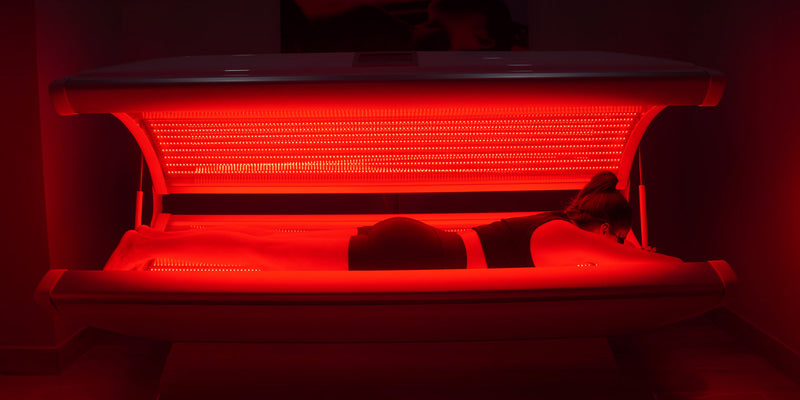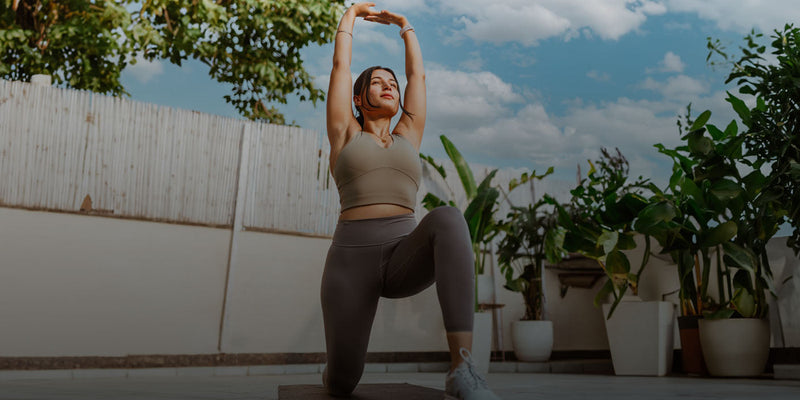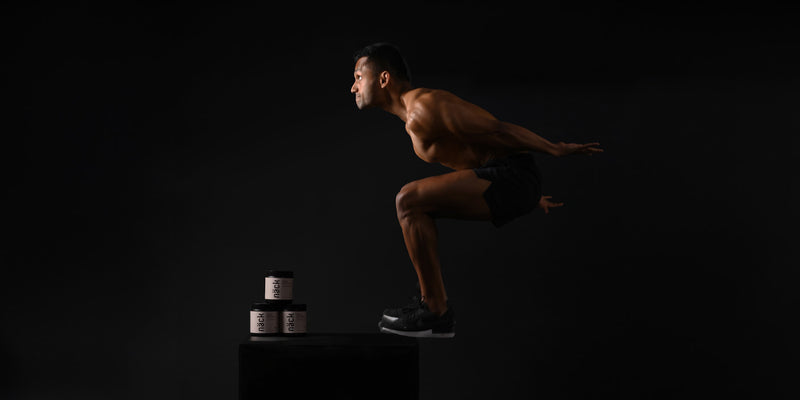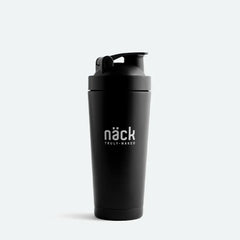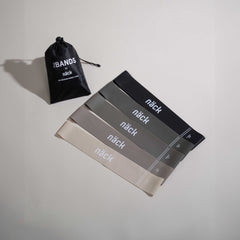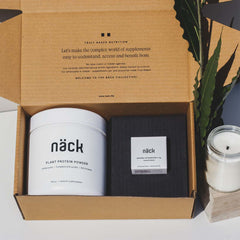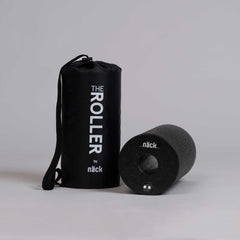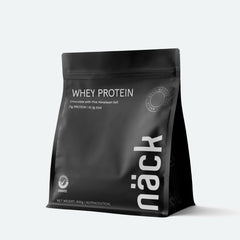Okay, calling all fathers, uncles, brothers, sons, and everyone in between – this one’s for you.

Wellness is the act of practising healthy habits on a daily basis for bettering one’s physical and mental health, and as such is not a gender-specific act, because how could being aligned with oneself, pursuing good health be a male or female thing? Especially in this climate when we’ve come so far in addressing gender binaries, and norms? Right?
..maybe, just a little wrong. While it’s true that women have had a better history of pursuing good health (even with something as basic as washing hands), and that a huge chunk of the wellness industry markets solely to women, men aren’t completely unfamiliar with the world of wellness and ‘self-care’. It might not be the love-yourself-and-steam-your-vagina type of a space that the Gwyneth Paltrows of the world want to build, but it also might not be too far off!
It’s Wellness 2.0 – the rough and tough edition, which is the same notion of self-care, just repackaged to sound more……masculine? It might just be because of the lack of reliable role models in the past, but even closer home starting from the face washes to the 3-in-1 shampoo, conditioner, body washes, men’s wellness has long perpetuated the notion that to be masculine is to be tough, strong, and independent.
There has been a shift, especially in the pandemic era, when our personal notions of what being truly healthy looks like changed, and so did the marketing and messaging that the industry used. The taboos and stigmas around men’s wellness started to be addressed – with GQ rebranding their digital fitness section to be into a wellness section, more and more men opening up about their mental health, which in theory seems like a positive development. But, grooming companies still market their male products as ‘DEEP IMPACT’ in bold and black with visuals of fire or something ‘tough’, and GQ India still categorises exercise and nutrition as something you need to take care of to Ishaan Bharat, Aerialist and Visual Artist says “Gender is a sort of performance that most of us learn by picking up on cues from a very young age. Boys grow up observing the men in their families or around them, who intentionally or unintentionally teach them what ‘being a man’ looks like. Very rarely do we see men being soft or vulnerable. Expressing emotions is commonly seen or perceived as a sign of weakness. The root cause of this is usually judgement from society and this pressure to be the conventional solid, secure male figure. Often this results in boys becoming men who internalise their feelings and emotions. You become ‘less of a man’ if you’re seen being soft or emotional, whether it’s in front of one’s family or even friends, and so the avenues for men to express keep shrinking, and soon one is trapped in the vicious cycle of performing this role.”
This definition of masculinity has been identified as toxic masculinity in recent years – toxic because men end up hurting themselves, and their identities both if they follow these masculine norms and also if they fail to adhere to these toxic masculine norms. “We have created a world where a man is expected to check a certain number of boxes to be considered a complete man. The pressure of endurance on men, the worship of the six-pack greek gods by popular culture, the glorification of a big penis, the expectation of raising a family, stories told of a hero as always a pillar of strength. We are conditioned from an early age that if we don’t live upto to those expectations, we are weak and undeserving of success. While the world is making changes and amendments, we all are a part of this system that is hard to escape” adds Art Director, Sahdev Hooda.
Can’t Spell ‘Mental Health’ Without ‘Men’
This version of masculinity and toughness discourages men from fully feeling their emotions, or asking for help when they need to. Worldwide, men report higher suicide rates than women. A 2019 study on barriers that men run into when approaching mental health services, found that out of the 778 participants tested, 73% reported that they believed they needed to solve their own problems.
Known as the ‘silent crisis’, men are less able to talk about their mental health concerns due to stigmas, environmental conditions, and the need to appear ‘strong’. “Vulnerability is not just about letting your guard down, it’s about being strong enough to be able to expose your true inner self – the parts of us that we all keep hidden & protected. The parts of us we’re scared or embarrassed to share. The parts of us that deeply define who we are. Exchange of emotions is vital for growth and bottling them up only makes our inner core weaker, which directly affects our mental health. If we create no room for softness or sensitivity, it kills any hope for empathy, which leads to further disconnectedness.” says Ishaan Bharat.
In recent years, a number of male celebrities have started opening up about men’s mental health, paving the way for changing the dialogue around gender and therapy and supporting a healthier sense of masculinity. “Stigma fades when men and boys see resilience and mental health self-care modeled by their fathers, brothers, teachers, faith leaders, and friends,” says Dr. Octavio Martinez Jr, executive director to hogg foundation for mental health.
And he’s right. Man is a social being, and being a part of a community is so important. “Just like any human being, men go through various mental health issues, but rarely open up and talk about them. Having a community can make them feel comfortable to share their problems, and lift the weight off their shoulders! Moreover, engaging in any physical form of fitness with a community just makes life better, leaving a man happier and at peace!” says Kirsten Varela, Calisthenics Coach and Founder of India’s first Elysium Calisthenics Park.
Let’s Get Physical!
Physical fitness is an aspect that men, for the most part, do not ignore. But, physical activity is not just structured exercise and doesn’t have to be gruelling or uncomfortable to offer health benefits. Spending time at the gym can be daunting for many men because the idea of ‘no pain, no gain’ can seem scary, or even undesirable. Should it be desirable? While there is a certain amount of discomfort or soreness that one may experience during or after a workout, pain is usually a sign of an injury and is not something you should ignore or work through.
While we’re on the topic of gains, engaging in physical activity for aesthetic reasons can be a great motivator. However, judging your journey or growth through numbers, or gains, can be harmful, leading to a severe body image issue in men. Boys as young as middle school, hit up the gym to ‘bulk up’, or ‘look lean’ because they feel pressured to look a certain way.“Unless you’re a professional athlete competing in a specific weight class, your weight does not matter. You might weigh differently at different times of the day and month, this might be because of one heavy meal or bloating or anything really. For me, the biggest parameter is how you feel in your body, the change in your ability to perform a certain task and the mirror. The ‘journey’ and the results are very subjective. Associating your growth and progress on a number that keeps on changing and is so inconsequential in the grand scheme of things. The last thing you want is to make your wellness journey stressful. “ says Kunal Rajput, Founder, Unlock.
But, male body image issues are about more than just how they look. Men also struggle with figuring out how to deal with hair loss, male pattern baldness, height perception, skincare, and how the heck do you manscape properly, anyway?
Sahdev recalls, “I remember something one of my bosses, in her late 50s, said to me. Pulling her sagging skin under her jawline, looking into the mirror she said “I think I should get a facelift. Anyway, my husband says men should be rich and women should be beautiful. So he is rich and I must remain beautiful.” As archaic as that statement is, it does throw light on the fact that male beauty hasn’t been an area of focus in our popular culture. Though I think men have started to care a bit now. I see enough men getting facials and pedicures when I go to the salon for my grooming. So change is underway.”
And, it sure is. Men between the ages of 18 to 45 are driving the face wash and personal care industry in India. “Interestingly, men have advanced beyond just a haircut and shaving to more advanced services such as facials, waxing/threading, hair setting,” said Rashmi Nair, group business director, media, Kantar IMRB (to LiveMint). So, baby steps!
Eat Your Heart Out!
Globally, men experience a shorter life expectancy than women by upto 5 years. Men have different and unique health concerns than women. Prostate cancer is the second most common cancer in males. And men, between the ages of 18 and 44, do not see their primary care doctors regularly, or at all.
There are of course other factors involved when it comes to developing diseases and conditions. But, you can take control of your health and make better lifestyle choices. Exercising is important, but it’s also good to take note of what you’re putting into your body.
“Mindful eating helps you understand what we really require as opposed to what we assume we need and crave. For me, it all started by wanting to know more about myself and how foods work on my mood, sleep, creativity, attention and recovery. Of course, it’s not always easy, but what helps stay motivated is remembering the benefits eating well and healthy will have for you in the long run.” says Niran Ponnappa, Certified Fitness Coach, and Founder of TFD CrossFit. And once you start being mindful, it quickly becomes a habit! “I tried different dietary approaches and realised that the only thing common between all of them is being conscious about what you’re consuming and how much you’re consuming. Once you realise that it all revolves around simple elements such as calories & macros you can always be mindful and reach your goals,” adds Kunal Rajput.
Getting To Know The Men
Now, here’s a look at the wonderful men who helped put this together and what well-being looks like for them.
Ishaan Bharat, Visual Artist and Aerialist

“Currently for me, taking care of my health is about balance, consistency and intuition. For someone like me, with many interests, balance is key when you’re multitasking. Knowing what to prioritise when, and structuring your time accordingly. I’ve come to realise that being strict with yourself is not always the best for your mental health. That’s where consistency comes in. Personally, I aim to be consistent with my healthy habits and practices, while allowing room for breaks or slips every now and then. Lastly, intuition is my personal favourite – everyone has it, but not all of us acknowledge it. It’s simply about listening to your body or gut and knowing in a semi-subconscious way when to say yes or no.
I’m generally someone who’s high on EQ and very expressive. Being an artist, I’ve always found satisfaction and productivity in expressing myself creatively. For me, the real struggle has been in finding the right and relevant mediums of expression which connect with my core. I always found more joy in forms of movement linked to performance or creative expression – like dance & theatre. Being queer I always had this obsession with non-conformative culture and an unexplicable fascination with all things CIRCUS! It was much later in life that the ‘aerial arts’ came to me, at a point when I was lost and desperately seeking a form of bodily engagement that was technical, unusual and allowed room for creativity in movement. What I do now is the perfect balance of formula & flow, and I’ve never felt more connected to any form of movement. Being able to express through art & aerial definitely helps me tune into my inner voice and be a better, more genuine version of myself.”
Kirsten Varela , Calisthenics Coach and Founder of Elysium Calisthenics Park

“Being an athlete and a coach, my life revolves around health and wellness. So it’s crucial that I’m physically and mentally fit to perform my daily tasks! I’m a pretty energetic and hyperactive man. Being idle makes me feel weird, and sometimes anxious. Thus, it is crucial to keep myself busy. And fitness does exactly that, and keeps me sane and happy!
Taking care of my health these days looks like a lot of time spent at the calisthenics park, I focus on strength training, along with some skill training like handstands, human flags and flips. It also means taking a good look at what I put into my body. I try to eat balanced, and nutritious meals to support my training. Usually, that looks like eating healthy 6 times a week and indulging myself once a week. I also make sure I get 7-8 hours of sleep every night so my body has enough time to rest and recover fully, and build the energy back up.
But, I know it can’t be all work and no play, even though training never feels like work. So, I try to make time for my hobbies and try to play the piano a couple of times a week.”
Kunal Rajput, Founder of Unlock

“At this point in time, taking care of my health means being able to retain my ability to move well, feel well and look well. It’s to be able to do all of the above while still being able to spend the energy required to focus on my professional life and career.
I believe the ability to move and explore the capabilities of your body is a gift. The feeling of being alive, pushing your limits and having those internal conversations with myself is imperative for me. My mode of movement is generally training and pushing myself and this allows me to know myself a lot better, how I’m feeling on that day, how dedicated I am to achieve the micro goal of working out and the feeling of accomplishment once I complete a task puts in a lot of positivity and boosts up my morale. The endorphins help and so does looking in the mirror and feeling confident about myself. After all these years, I can’t really pinpoint a certain thing that connects physical movement with mental health because they are so interconnected in so many ways.”
Niran Ponnappa, Certified Fitness Coach and Founder of TFD CrossFit.

“I’ve been a fitness trainer for the last 14 years and now taking care of myself involves a good balance of gym time and me time. I make sure to cook and eat my meals on time, with a good mix of carbs, proteins, and greens. Drinking water and staying hydrated is a big part of my day as well. Outside of the gym, I spend some time reading books or listening to the sounds of nature to ground myself. And then I ensure to get to bed on time and get about 6-8 hours of sleep every night.
In short, it’s a lifestyle. It’s become a part of my subconscious after so many years of practice. Even when I happen to have a few drinks with friends occasionally, I ensure to be present and have a good time, and also watch what I eat with it – find ways to balance it out. I also love my sweets, so I look for alternatives that I can consume regularly but also find a way to incorporate the not-so-healthy ones into my diet sometimes in small amounts.
Activity is extremely important for my mental health. 10 on a scale of 1-10… The feel-good hormones that release during exercise/movement cannot be replaced with anything else. It helps me stay rational and calm – most days.”
Sahdev Hooda, Art Director

“For me, health really does start with the body. A healthy body creates the aura of wellness which I believe translates to your mind and your decision-making skills. I drink 3-4 litres of water every day. I eat A LOT of fruits and have removed grains(minus white rice) from my diet which has helped me with my gut health. I work out 2-3 days a week and not take work or life too seriously. It keeps my anxieties at bay. Also, I take rest days seriously.
From an early age, the creative minds are subconsciously looking for a platform to express themselves. It is what draws us to the arts, or fashion in my case. I feel lucky that I get to put a part of myself out there through my work and there is something freeing about that. I am at ease with what I feel and can channelise that into my creativity. Using it to fuel my ideas and vision. With time the community I have built allows open conversation on subjects that could be taboo otherwise. Which is very important for your emotional health. To be able to express without the fear of judgement is something I wish for everyone.”

